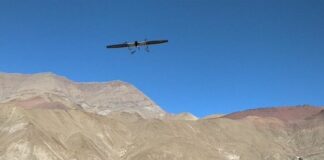On the first anniversary of the Russia-Ukraine war, the world is staring at a deeply unsettling, uncertain future. The political, security and economic environment has deteriorated to such an extent that there is open talk about among people about the possibility of a wider conflict (Third World War?) and the use of nuclear weapons. Unless the diplomacy is given a chance, the peace is threatened. The world needs statesmanship.
By Arvind Gupta
President Biden’s surprise visit to Kyiv amongst wailing sirens and the jingoist speeches by the European leaders heard at the Munich Security Conference gives a fair idea of the mindsets of NATO countries. Massive amount of weapons and equipment have been poured into Ukraine by over 50 countries. Ukraine is demanding more including tanks and fighter jets. The eastern part of Poland, close to the Ukraine Polish border, is being fortified with barbed wires and air defence systems. As per Biden, about 700 tanks and thousands of armoured vehicles, 1,000 artillery systems, more than 2 million rounds of artillery ammunition, over 50 advanced rocket launch systems, anti-ship and air defense systems etc have already been given. More are in the pipeline. President Zelensky has called for a complete victory in the war in 2023. Biden has vowed to stand with Ukraine to defend democracy “as long as it takes”. The west is projecting Russia as exhausted and vulnerable. It is confident that Russia can be defeated in this war.
President Putin is undeterred. In a speech to the Federal Assembly on 21 Feb 2023, he promised to resolve “outstanding tasks” in the Ukraine conflict “step by step”. He accused NATO of being directly complicit in the war. He warned that Russia will respond appropriately if the west supplies long range weapons to Ukraine. He noted that the Russian economy had not collapsed as the west had hoped and that Russian production units were working just fine. Putin’s assurances come even as a bloody war is raging in Donetsk where Russians have yet to establish full control. While exact figures are not known, casualties on both sides have reportedly crossed several lakhs. The west is hoping that eventually Russia will not be able to stand against a united west and will be tired out.
President Putin has suspended Russia’s participation in the New START Treaty which is aimed at keeping a cap on the numbers of nuclear weapons possessed by US and Russia. Thus, the last standing Arms Control Agreement has gone into limbo. There has been considerable talk on the possible use of nuclear weapons by Russia if Russia faces defeat. Russian leader Medvedev had on an earlier occasion hinted at the use of nuclear weapon if Russian army is defeated. President Putin has hinted that Russia would resume nuclear testing if the US does so.
The Chinese, who are so far standing by Russia as a partner, are carefully watching the dynamics of European war. They may have to confront the US and its energised allies if a conflict breaks out in Taiwan. China has been accused by the western agencies of supplying weapons and war materials to Russia. This serious charge makes China almost a party to the conflict. Just as Germany is increasing its defence budget, PM Kishida has announced an additional USD 350 billion defence spending over the next five years. Japan’s remilitarization will have serious consequences for China. The Indo-Pacific region will not remain unaffected by the growing tensions in Europe.
Chinese State Councilor Wang Yi’s recent visit to Moscow after his European tour is important. Putin and Xi had signed a “no limits” partnership agreement in Feb 2022 before the Russia Ukraine war started. While China has stood by Russia and not condemned it openly, it is deeply worried that the war could have repercussions in the “Asia-Pacific” where Taiwan remains a hot button between the US and China. China has publically spoken in favour of end to the war but also joined hands with Russia to criticize the US hegemony. Whether China can broker peace between the two sides is being debated but remains a question mark. China’s own relations with the US have deteriorated sharply following the spy-balloon incidents. China’s own credibility due to its assertive stance in South China Sea, East China Sea, Galwan and the motivations behind the Belt and Road Initiative remains questionable.
Russia-Ukraine war has had a huge impact on the world. Geopolitical rivalries are deepening. The weaponisation of sanctions triggered unprecedented global food, fertilizers and energy crises that have put pressure on several economies. Global inflation and interest rates are high as global economic growth slows down.
The threat posed by climate change has been compounded by geopolitical challenges. Further, there are risks to international financial system from crypto currencies. Digital economy is also vulnerable to cyber security weaknesses. Debt sustainability is a major challenge. Post pandemic, the economic recovery has been weak and uneven. These issue need to be addressed urgently.
The G20 accounts for 80 percent of global GDP, 75 percent of trade. It has contributed to bringing financial stability to the world in the past during the global financing crisis. Since then its agenda has expanded to include major issues of global governance. It provides alternative fora for discussion. It can help in strengthening global governance. The G20 has to engage with a wide range of global issues in the backdrop the heightened risk of a wider conflict emerging. It has to reckon with the paralysis of multilateral institutions. It should not just be a platform for discussion of the agenda of the developed countries; it should reflect the voice of the South also.
As the current president of G20, India has the onerous responsibility of steering the G20 to a successful conclusion. This will be a challenging task in the light of current geopolitical trends. India’s diplomatic skill will be tested. At Bali, India played a constructive role in getting a consensus declaration issued. India should further mobilise the G20 to speak in favour of global peace and stability.
While it has not taken sides in the conflict, India cannot remain immune from the wide ranging impact of the deteriorating global situation. It will be in India’s interest to voice the implications and consequences of the current situation for the rest of the world including India. It should call out for an immediate cease-fire and the initiation of dialogue and negotiations to resolve the conflict. It will not be easy, but it must be done to save the humanity from a possible third world war.
PM Modi took an unprecedented but laudable step by convening a virtual meeting of the countries of the Global South ahead of the G20 summit meeting. The objective was to understand the concerns of Global South and voice them at the forum. As if on a cue from PM Modi, several western leaders like Macron, Scholz and Kishida have also spoken about the need to address the concerns of the Global South. This opens up the opportunities for India to engage with these countries on global issues. This could also pave the way for some kind of a peace initiative.
PM should speak to the leaders of the North as well as South to build a consensus in favour of ending the war. Chancellor Scholz’s forthcoming visit to India provides an opportunity. Prime Minister will also be attending the BRICS summit in South Africa. The G20 summit will be a good opportunity to flesh out the significant idea of PM Modi that this should not be an era of wars. Now is the time for statesmanship to stop the downward spiral in international affairs. India should play its role.
This article first appeared in www.vifindia.org and it belongs to them.








